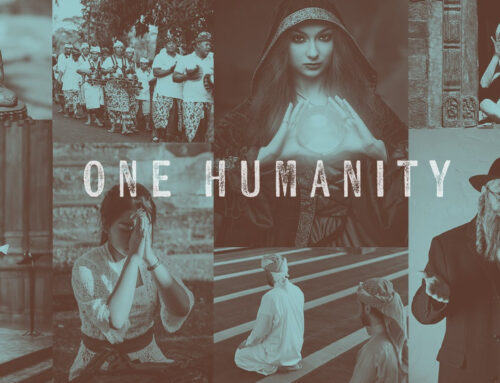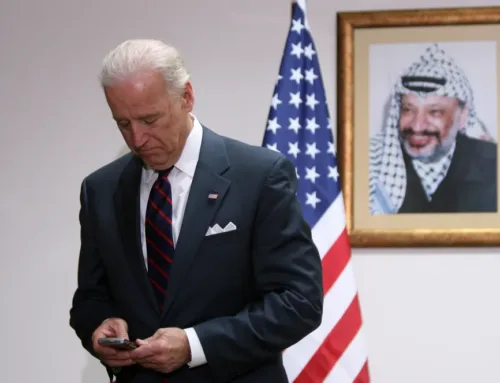“If someone says they are going to kill you, believe them.”
~Machiavelli
He followed that statement up immediately with…
“…Prepare to defend yourself, not appease, because appeasement breeds contempt.”
Islamic Indoctrination 101
February 1, 2024
Reprinted from Jihad Watch
In the late 1990s, I was beginning the second semester of my freshman year at a small liberal arts college in Virginia. At this particular school, all first-year students were required to take a “freshman seminar.” This was a smaller class than the introductory “survey” classes that students typically took before declaring a major. Graded on the basis of in-class discussion and papers rather than exams, these were intended to provide students with an opportunity to focus in greater depth on a narrow topic and to hone their skills in research and writing. There weren’t too many options for such classes when I registered, but I managed to get a spot in a freshman seminar on the promising topic of “Music in Religion.” I wasn’t thinking of majoring in either field, but I’d been a Christian all my life and was interested in other religions. I’d also studied music theory and performance (voice and piano) for many years, so it seemed like a good fit.
There were six of us enrolled in the class. On the first day of class, we met the professor, an ethnomusicologist originally from Bosnia, and received the syllabus. We’d be studying music within two religious traditions – Islam, during the first half of the course, and then Christianity in the latter half. In addition to participation in class discussion, we would be graded on the basis of two papers: a text-based research paper that we would write at mid-term about music in Islam and a longer one making comparisons of the use of music in both traditions and drawing upon field-work that we’d do at a local Christian church of our choosing in addition to textual research that would be submitted at the end of the semester.
We were told to think of ourselves as “participant-observers” during our fieldwork, which is a methodological concept used within the field of anthropology. The idea was that we should be loosely participating in religious services in order simultaneously to make mental observations of those rituals and practices. Several of us (including me) had some concerns about this and asked the professor questions about the ethics involved in “pretending” to be part of a congregation in order to place that group of people and their practices under an academic microscope. The professor assured us that this was perfectly normal and ethical, and that it was moreover part of being intellectually serious with respect to the subject of the course. As it turned out, about half of us students were Christians, so we realized that we wouldn’t actually be “pretending” in participating in Christian worship services; we would just need to be “observing” our own churches or else find another church to attend and observe for a few weeks to complete the “fieldwork” component. The remainder of the students were atheists or agnostics – the ones who would potentially have had the most reason to object to being required to participate in Christian services – but they decided that they didn’t have enough of a problem with this to drop the course or press the point.
Oddly, there were no required textbooks for the course – not even a “coursepack” comprised of photocopied academic articles or excerpts from books. We had a link to the professor’s recent dissertation, however, the text of which was available online. This seemed pretty cool to us; we were college students on slender budgets and the internet was the “hot new thing” at the time. It was, however, just as dry and pedantic as most dissertations are; we were required to cite it in everything we wrote for the class. And our institution’s library was a good one that would be sufficient for our research needs.
The first few weeks of the semester were dedicated to giving us a foundational understanding of Islam, so that we could understand the role played by music within that religion. We learned that Islam is a monotheistic religion, and that it belonged to the same tradition as Judaism and Christianity, worshiping the same God. It was begun by Muhammed – a seventh-century prophet born from Arabia who believed he’d received revelations from the angel Gabriel, which were recorded in the Islamic holy book, the Qur’an (which we were never required or even encouraged to read). We learned that the word “Islam” meant “submission [to God],” that it is cognate with the Arabic word for “peace” (salaam). It is, accordingly, a religion of peace with a long, beautiful tradition that was largely unappreciated in the West. At the least, we knew that Islam was deeply admired by our professor, who said he was himself a Christian but also felt very comfortable identifying as a Muslim and participating in Islamic practices. According to him, there was no real or significant incompatibility between the two faiths; Jesus and all of the prophets of the Christian Old Testament were revered within Islam as virtuous and obedient to God.
And, based purely on the exposition of the Five Pillars of Islam that we received, one might even find this claim plausible. The sorts of things that comprise the Five Pillars are also features (if not necessary components) of Christianity; they only seem to differ in their particulars. Christianity has professions of faith like the creeds or even the confession of Christ as Lord of Romans 10:9, while Islam has the shahada. Both religions enjoin prayer (salat in Arabic) and almsgiving (zakat). Many Christians fast during Lent, while Muslims engage in fasting (sawm) during Ramadan. And Christians throughout the centuries have chosen to visit holy sites on pilgrimage just as Muslims try and complete the hajj – the pilgrimage to Mecca.
But we didn’t only learn the Five Pillars of Islam; we also learned the Sixth Pillar – jihad, or “holy war.” The professor told us that this was a bit more controversial than the other five, but that it was authentic and important as well. As our professor explained it, it sounded like jihad encompassed primarily an internal struggle against sin or apologetic debate or evangelism – the same sorts of things found within Christianity. However, he was also clear that jihad could mean actual warfare against non-Muslims, who regularly pursued unwarranted and persecutory armed conflicts against Muslims both in the past (e.g., the Crusades) and in the present (e.g., the war waged by Serbs and Croats against Bosnian Muslims in our professor’s land of origin that was going on at the time). I had actually read enough history and contemporary news reports to have serious reasons to doubt the professor’s narration of the causes of both conflicts.
This was about as much as we were taught about Islam – and, incidentally, about Christianity as well. Most of the class sessions consisted not of the sort of discussion you’d expect in a seminar (although we were allowed to ask questions), but rather of lectures and demonstrations from the professor and “recitations” from the rest of us. We saw slides of Mecca and the Kaaba and “whirling dervishes” who belong to Sufi sects in Turkey. We listened to recordings of muezzins proclaiming the adhan or azan (the call to prayer), to intoned recitations of verses of the Qur’an, and to our professor praying prayers in front of us – all of these in Arabic, which none of us could understand – and demonstrating the movements (standing with his hands by his ears, kneeling, genuflecting, turning to look over his shoulder, etc.) that accompanied these prayers.
At some point – after it was too late for any of us to drop the course and try to switch into another freshman seminar – the professor told us that, technically, music is forbidden within Islam. His claim was that it was nonetheless “musical,” and so we were supposed to listen to the tones and rhythms of the adhans and prayers and recitations, even though we were never taught any kind of musical theory or given any other conceptual tools for analyzing these in any way. The six of us students began grumbling together in corners before and after class, trying to make the best of it and joking that the course should not have been named “Music in Religion” but rather “Why [Professor X] Loves Islam.”
None of us were loving either the professor or the class at this point, and I’m sure that some of this sentiment influenced our views of Islam as well. But we were all stuck in the course. And things were about to get worse.
Filed Under: academia






Leave a Reply, please --- thank you.